Sending a follow-up email after interview is more than just a polite gesture — it’s a proven tactic to stand out.
With 1 in 5 Hiring Managers admitting they dismiss candidates who don’t send a thank-you email, a follow-up could be the difference between landing the job or being forgotten.
Why Sending a Follow-Up Email After an Interview Matters
Following up after an interview serves two main purposes:
- Expressing gratitude: A follow-up email is an opportunity to thank the interviewer for their time.
- Showcasing interest: It signals your enthusiasm for the role and allows you to stand out from other candidates.
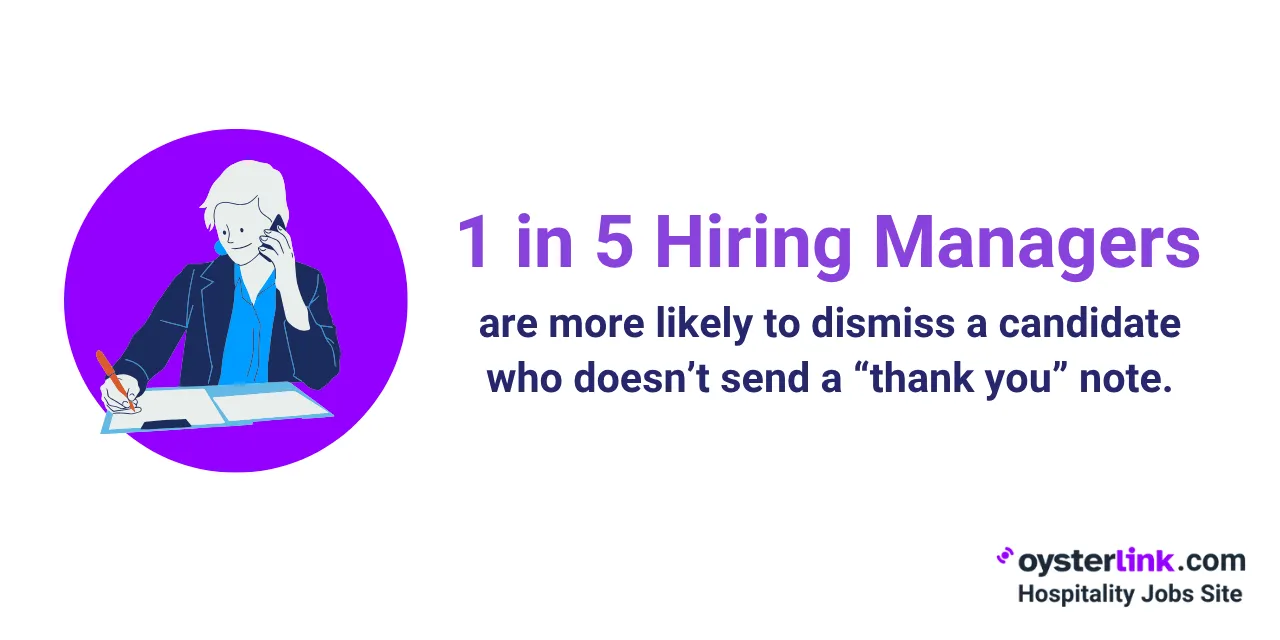
A follow-up email can also address anything you forgot to mention during the interview, giving you a second chance to make a strong impression.
Industry hiring experts also emphasize the value of timely follow-ups.
According to Andrew McCaskill, Senior Director at LinkedIn, a follow-up email is a great way to reference something you discussed during the interview and show genuine interest in the role (via Fox Business).
When To Send a Follow-Up Email After an Interview
The timing of your follow-up email is critical. Before diving into the specific timelines, check out this quick video that explains when to follow up after an interview:
- Networking email: Send this 2–3 weeks after no response or if you didn’t get the role. It’s a great way to maintain a positive connection.
- “Thank you” email: Send within 24 hours of your interview to show your promptness and appreciation.
- Follow-up for updates: Wait for the timeline given during the interview.
If told to expect a decision in a week, follow up one week later. If you haven't received a response within the expected timeframe, it's appropriate to send a polite follow-up email inquiring about the status of your application.
If no timeline was given, a follow-up after 7–10 days is appropriate. This demonstrates your continued interest in the position and respect for the employer's time.
Types of Follow-Up Emails + Templates
Depending on your situation, here are three types of follow-up emails you can send.
1. “Thank You” Follow-Up Email Template
After your interview, send a quick thank-you email to express gratitude and reinforce your interest in the role.
You can do so in the following way:
Subject line: Thank you for your time
Dear Mrs. Smith,
Thank you for taking the time to meet with me about the Concierge role.
I am excited about the opportunity to join your organization and contribute to your team.
After our conversation, I am confident that my previous experience and skills align with what you are looking for in the role and I look forward to supporting your team in achieving business goals.
If you have any additional questions, please feel free to reach out at [email address] or [phone number].
Again, thank you for taking the time to meet with me.
Best,
[Name]
2. Follow-Up for Updates Email Template
If you haven’t heard from your potential employer within the time frame they indicated, it is perfectly acceptable to send a follow-up email for updates.
Use this template to politely inquire about the status of your application.
Subject line: Follow-up on Bartender role
Dear Mrs. Smith,
I hope this email finds you well!
I am writing to inquire about the status of my application for the Bartender role.
It was great to meet you and the team, and I look forward to hearing from you.
Should you need any additional information from me, feel free to reach out here or at [phone number].
Thank you for your time and consideration,
[Your Name]
3. Networking Follow-Up Email Template
Even if you didn’t get the job, keeping in touch can help build a professional relationship for future opportunities.
Subject line: Thank you for your time
Dear Mrs. Smith,
Thank you for taking the time to consider me for the role of Chef.
I am reaching out to say that I enjoyed my conversation with you and other members of your organization.
Although I may not be the right fit for the Chef role, I am still aspiring to build my career in the restaurant industry.
I would greatly appreciate it if you could provide any feedback or insights from the interview process.
Your guidance would be invaluable as I continue to pursue opportunities in this field.
I would also like to stay in touch and express my interest in any future opportunities that may align better with my skills and experience.
Thank you for your time.
Sincerely,
[Your Name]
How To Write a Winning Follow-Up Email + Subject Line Tips
Crafting an effective follow-up email involves combining professionalism with personalization. Here’s what you need:
Key Elements of a Follow-Up Email
- Professional closing: Sign off with “Sincerely” or “Best regards.”
- Clear subject line: Examples include “Thank You for Your Time” or “Follow-Up on [Job Title] Application.”
- Personalized greeting: Address the recipient professionally (e.g., “Dear Mrs. Smith”).
- Relevant content: Stick to the purpose of your email, whether it’s expressing gratitude or checking on your application.
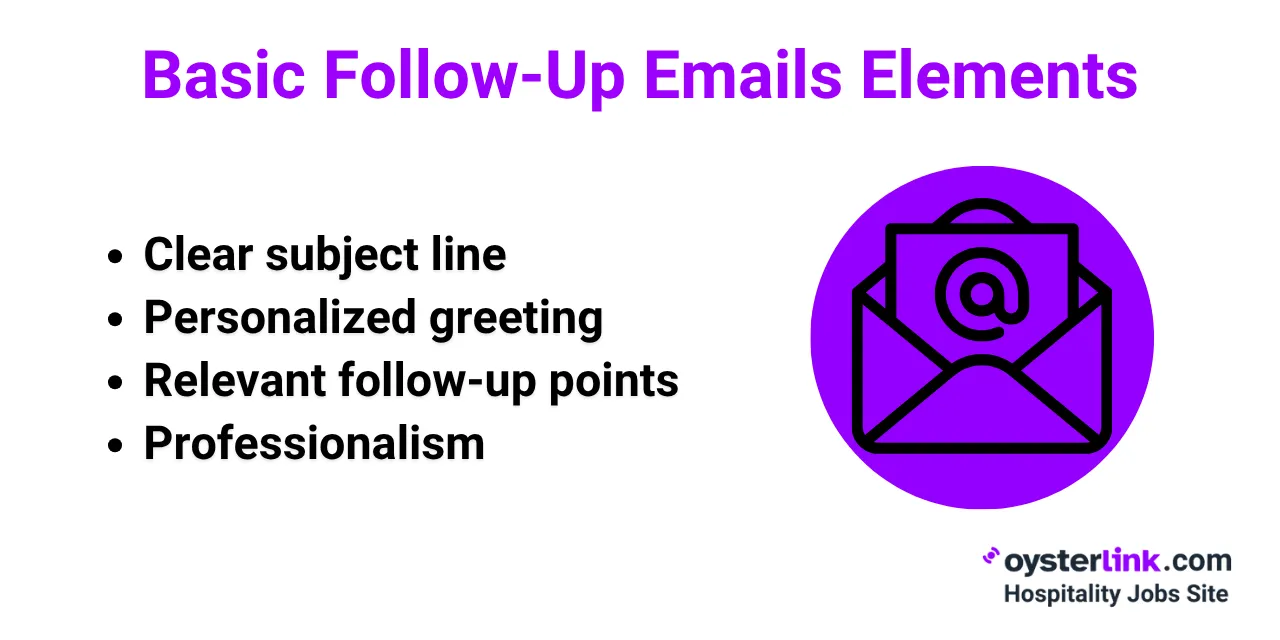
Tips for Personalizing Your Follow-Up Email
Personalization is key to making your email stand out.
Try these techniques:
- Reference specific topics: Mention key points discussed during the interview.
- Highlight company values: Reflect enthusiasm for the company’s mission or culture.
- Reinforce personal connections: If you bonded over a shared interest or topic, briefly mention it.
Pro Tip: Personalization shows you were attentive and are genuinely excited about the role.
More Interview Follow-Up Email Templates You Can Use
Below are customizable email templates you can use to send follow-up emails after an interview.
Adjust them according to your needs and follow-up with the recruiter or a Hiring Manager.
Quick Follow-Up Email Template
A concise thank-you email you can send to the recruiter to thank them for their time.
Subject: Thank you for your time
Dear [Name of Hiring Manager],
I hope this email finds you well.
I wish to thank you for your time and consideration for the role of [Job Title].
It was a pleasure to meet you and discuss how my skills and experience align with the role you are trying to fill.
I look forward to hearing from you and contributing my skills to your team.
If you have any additional questions or require additional information, don’t hesitate to reach out at [email] or [phone].
Best regards,
[Your Name]
Detailed Follow-Up Template
A more detailed follow-up email that you can send 24-48 hours after the interview, while recalling the specific points that were made.
Subject: Follow-up on [Position] interview
Dear [Name of Hiring Manager],
I hope this email finds you well.
I wanted to thank you for your time and consideration for the role of [Job Title].
After discussing the job description and [specific topics covered in the interview], I am excited about the prospect of joining your team.
I believe my skills align well with the role you are trying to fill and my [previous work experience] has made me well equipped to tackle the challenges your team faces.
Moreover, I am confident in my ability to contribute to your organization and to be a part of a team that works towards [specific goal].
Should you need any additional materials or reference from me, please let me know.
Once again, thank you for considering me for the role of [Job Title].
Best regards,
[Your Name]
Casual Follow-Up Email Template
If the tone of the interview was more casual than professional, then you can send the below casual follow-up email.
Subject: Following-up on the interview
Hi [Name of Hiring Manager],
I hope you’re doing well.
I want to follow-up on our recent conversation regarding the [Job Title] position at [Company Name].
I wish to express my continued interest in the role and my excitement about the prospect of joining your team.
If you have any updates on my application or if you need anything else from, please let me know.
Thank you for your time and I look forward to hearing from you.
Sincerely,
[Your Name]
Professional Follow-Up Email
If the tone of the interview was professional, consider sending a professional follow-up email like the one below:
Subject line: Follow-up on the interview for [position]
Dear [Mr./Mrs./Ms.] [Surname of Hiring Manager],
I hope this email finds you well.
I wanted to extend my gratitude for your time and consideration for the [Job Title] role at [Company [company name].
It was a pleasure to discuss the role and learn more about your company and its broader objectives.
I remain confident in my ability to contribute to your team and deliver results that align with [Company Name]'s goals.
If you require any additional materials or references, please let me know.
I am eager to provide all documentation that will demonstrate my commitment to this role.
Thank you for your time and consideration, and I look forward to the opportunity to work alongside you.
Best regards,
[Your Name]
Common Follow-Up Email Mistakes After an Interview
When crafting your follow-up email, it's essential to avoid certain pitfalls that could negatively impact your candidacy:
- Avoid sending a follow-up email immediately after the interview, and instead wait for at least 24 hours.
- Personalize your message by referencing specific points discussed during the interview to show genuine interest and attentiveness.
- Limit your follow-up emails to one or two. Sending multiple messages can be perceived as intrusive.
- Ensure your email is free from grammatical errors and typos to maintain a professional image.
Leveraging Technology for Effective Follow-Up
Utilizing technology can enhance the effectiveness of your follow-up communications:
- Email tracking tools: Use tools that notify you when your email has been opened, allowing you plan follow-ups accordingly.
- Calendar reminders: Set reminders to follow up at appropriate intervals, ensuring timely communication without appearing overzealous.
- Professional email signatures: Incorporate a well-designed email signature with your contact information and LinkedIn profile.
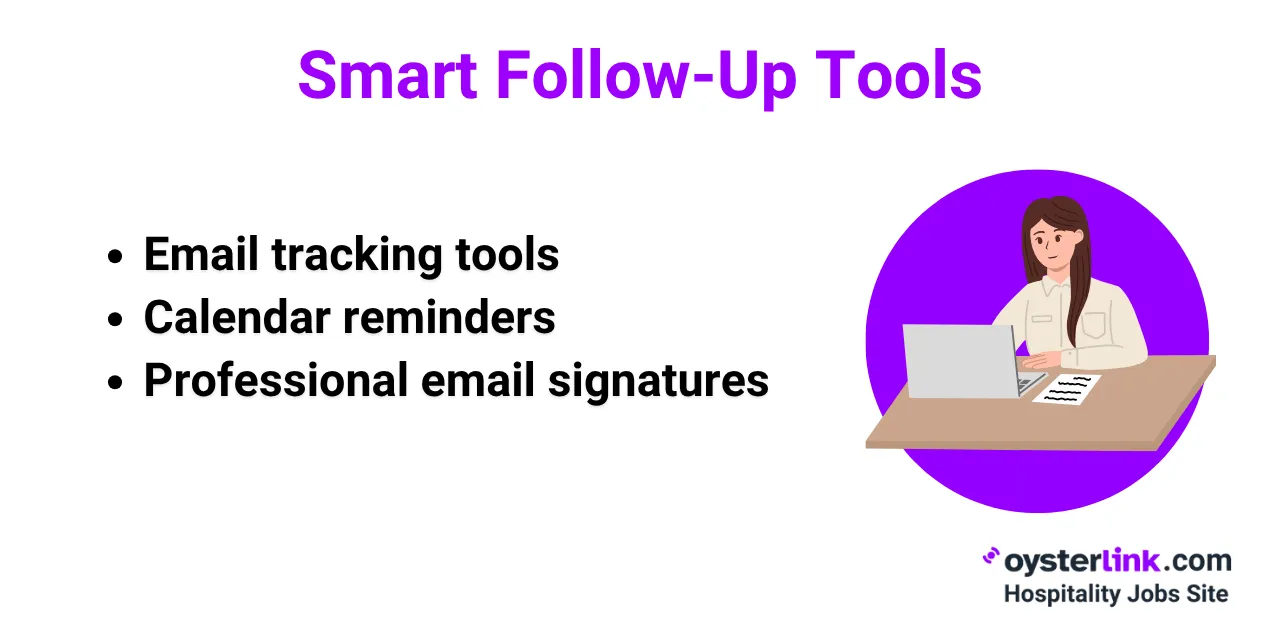
Interview & Follow-Up Email Resources
OysterLink is a comprehensive hospitality platform, providing you with valuable resources to start or improve your career in the hospitality industry.
If you’re looking how to write a follow-up email, conduct a follow-up call or write a motivational letter to get that job you’ve wanted, you came to the right place.
Our comprehensive platform can help you prepare for your upcoming interview process and calculate how much money you can earn through our paycheck calculator.
Explore our website and find resources to help you stay informed on various trends in the hospitality industry and improve your odds as a candidate.
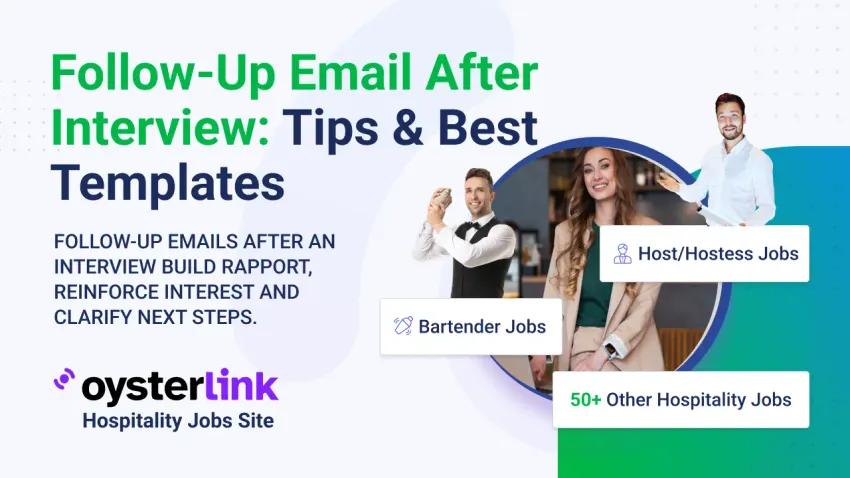




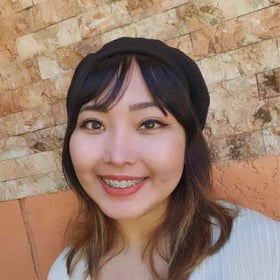





Loading comments...